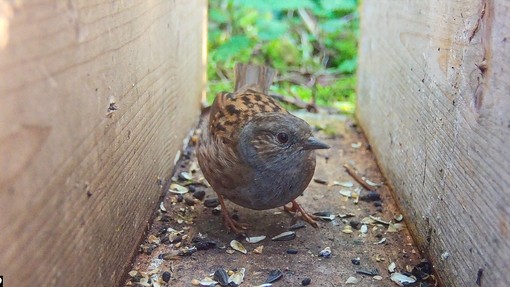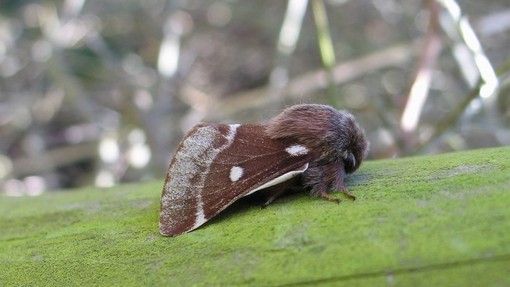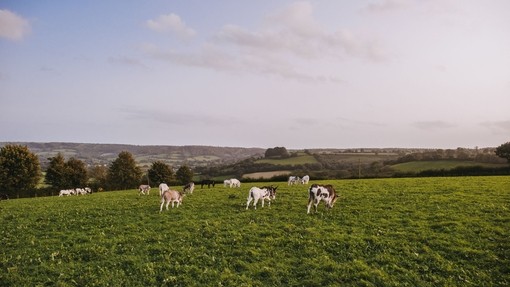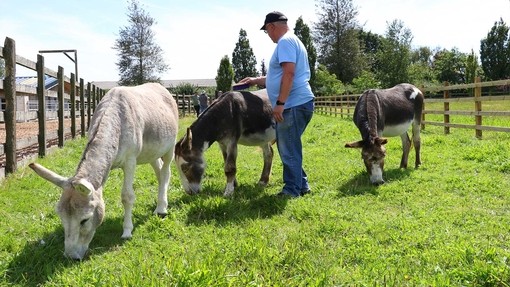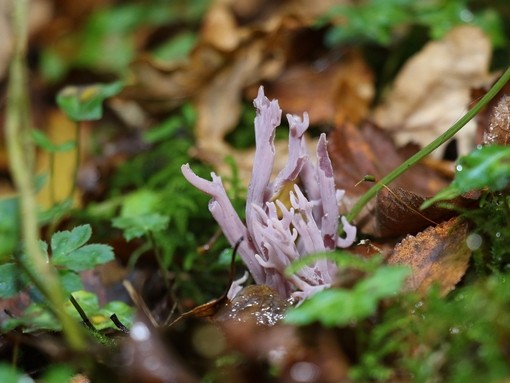
Do not change or delete this
The violet coral, Clavaria zollingeri, was recently discovered by one of our conservation officers, Helen Cavilla, at Paccombe Farm, home to more than 350 donkeys.
The sighting is only the second time this fungus has been recorded in Devon, while other records are from just a handful of sites across the UK.
The violet coral is scarce and one of the UK’s rarest fungi species. The fungi’s global population is decreasing. It is listed as ‘Vulnerable’ on the IUCN (International Union for Conservation of Nature) Red List of Threatened Species and Global Fungi Red List. Threats include habitat loss, pollution, agricultural intensification, over-exploitation and climate change.
The striking pinky-purple fungus, which is about the size of a cauliflower and boasts finger-like projections, tends to be found in old, unfertilised grasslands, which are themselves rare habitats under threat from agricultural improvement, disturbance and development.
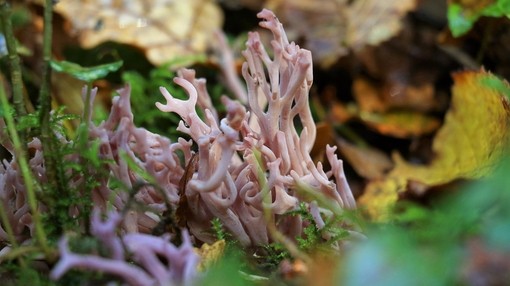
This specimen was found in a broadleaved woodland managed by our conservation team.
Helen explains: “I spotted something looking oddly like it was from an aquarium nestled amongst moss and leaf litter. It was really exciting to realise what it was when I got closer.”
Dr David Farley of the Devon Fungus Group explains: “The violet coral is one of our most beautiful fungi and can scarcely be confused with any other species.
“It is very rare in south-west England and usually confined to upland areas, so its appearance at The Donkey Sanctuary is especially unusual. In 40 years of observing wild fungi, I’ve only seen this species once before. A remarkable find.”
As well as the violet coral, our conservation team have found many waxcap fungi this year, and many of these are in donkey grazed fields.
Waxcaps belong to a group of mushrooms known for their waxy appearance and assortment of bright colours of reds, pinks, orange, yellows and whites, like jewels amongst the grass.
Helen adds: “I was also pleased to find other interesting mushroom species popping up through donkey droppings, efficiently recycling the nutrients locked within and releasing them back into the soil on which they sit. The benefits of managing grassland for both donkeys and biodiversity is beautifully apparent throughout the seasons”.
This type of habitat is also excellent for donkeys because they are adapted to thrive on the high fibre, low nutrient grazing that unimproved grassland offers. They also benefit from the enrichment that foraging amongst the diverse grasses and wildflowers gives them.
Your support makes stories like this possible
Share this page
Tags
- News


